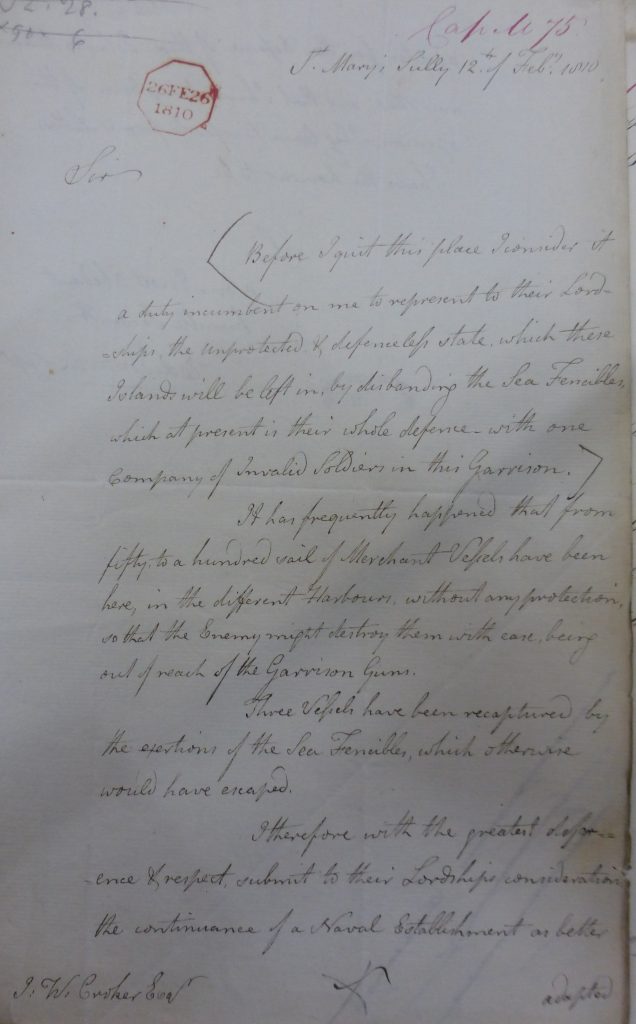Many an envoy has been accused of ‘going native’ by ‘headquarters’ when they are merely seeing things from a different perspective. This elegantly written letter comes from a Captain Marsh (RN):

St Mary’s Scilly, 12 of Feb 1810
J. W. Croker Esq
Sirs,Before I quit this place I consider it incumbent on me to represent to their Lordships the unprotected & defenceless state which these Islands will be left in by disbanding the Sea Fencibles which at present is their whole defence with one company of Invalid Soldiers in the Garrison.
It has frequently happened that from fifty to a hundred of sail of Merchant Vessels have been here, in the different Harbours, without any protection, so that the enemy might destroy them with care, being out of reach of the Garrison Guns.
Three Vessels have been recaptured by the exertions of the Sea Fencibles, which otherwise would have escaped.
I therefore with the greatest deference & respect submit to their Lordships consideration [of] the continuance of the Naval Establishment as better adapted for the Defence of these Islands than any other, and that I have always been of this opinion. I beg leave to refer to former Letters.
I have the honour to be, Sir, your most Obedient humble Servant
Edward Marsh, Captain
National Archives ADM 1/2162
The strategic importance of Scilly echoes down through history. Quite apart from it defencelessness against attack, the idea of an enemy using it as a forward base was always a concern, despite its lack of effective harbour for a large fleet.
In Tudor times, the threats from France and Spain led to the creation of King Charles’ Castle on Tresco, and Harry’s Walls on St Mary’s which were extended by the creation of Star Castle by 1600. During the Civil War, the islands were held for the King and Cromwell’s castle was added to Tresco, protecting the entrance to the main anchorage at New Grimsby Harbour.
Two gun towers were added during the Napoleonic Wars but these were clearly not enough for Captain Marsh. He may have been right to complain, no doubt reflecting local opinion, but perhaps he did protest too much for, by 1810, the immediate maritime threat from France had faded, following the success of Trafalgar.
